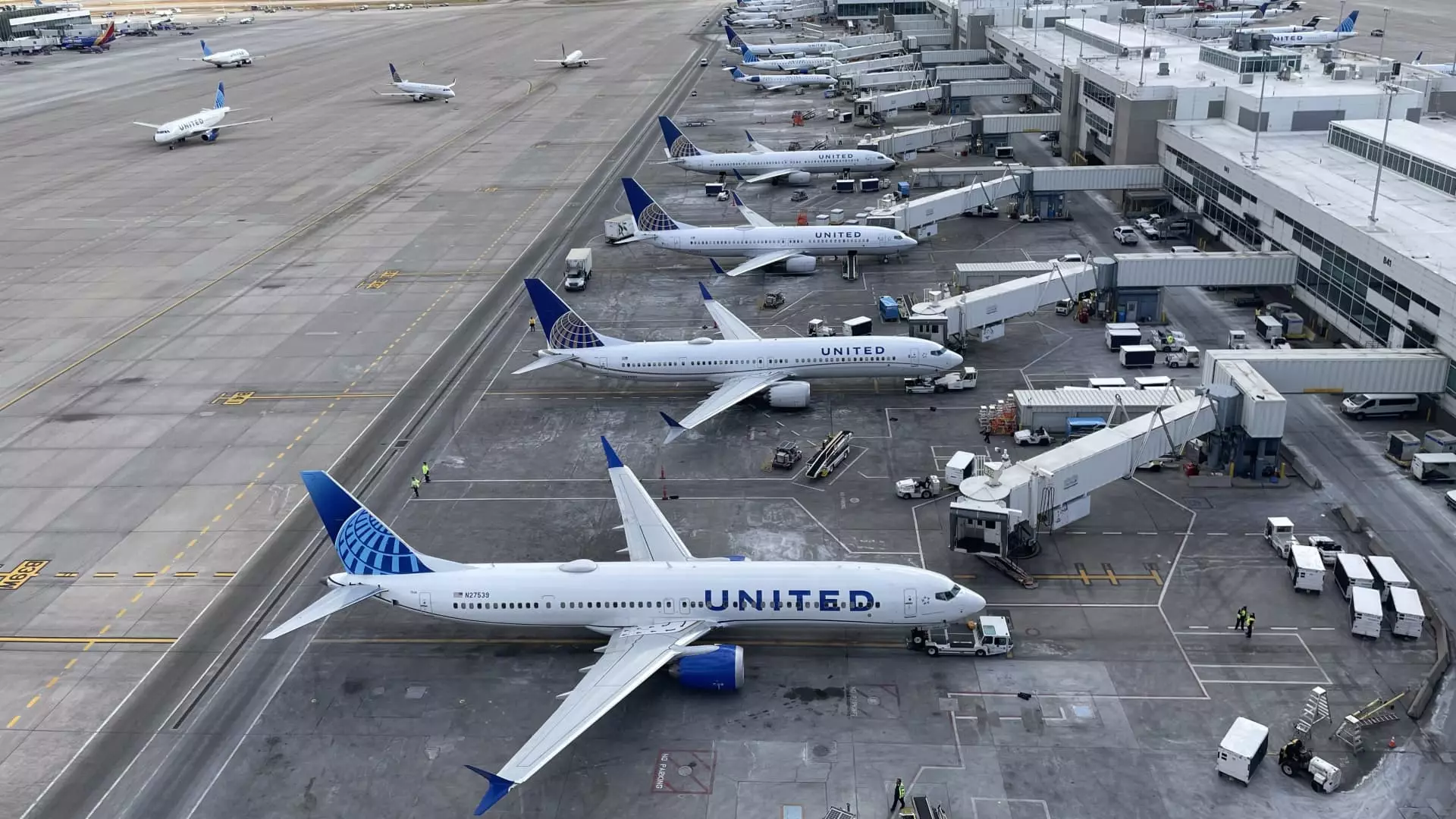United Airlines reported a significant increase in profit during the second quarter, with earnings per share adjusted to $4.14 compared to the expected $3.93. Revenue also saw a boost to $14.99 billion, up 5.7% from the previous year. The carrier’s earnings amounted to $1.32 billion, or $3.96 per share, showing a remarkable improvement over the previous year’s figures.
Despite the positive second-quarter results, United Airlines’ third-quarter forecast fell short of analysts’ estimates. The carrier expects to earn between $2.75 and $3.25 a share on an adjusted basis, lower than the expected $3.44 a share. This forecast disparity is attributed to an oversupply of flights, which has put pressure on fares and subsequently impacted the carrier’s earnings projection for the third quarter.
The airline industry has been facing challenges due to an increase in U.S. domestic capacity, leading to a decline in airfares despite high demand. United Airlines, along with Delta Air Lines, has managed to stand out in this competitive environment by expanding international flights and offering premium services to cater to travelers willing to pay more for a better experience. United’s premium revenue grew by more than 8% from the previous year, highlighting the success of its strategy in capturing different market segments.
United Airlines reiterated its full-year forecast for adjusted earnings between $9 and $11 per share, signaling confidence in its ability to navigate the challenges posed by the oversupply of flights. The carrier’s CEO, Scott Kirby, mentioned that airlines have started to trim their schedules, aiming to reach an inflection point to stabilize supply by mid-August. This strategic move is expected to positively impact unit revenue performance in the second half of the third quarter.
While United Airlines faces the challenge of an oversupply of flights impacting its earnings forecast for the third quarter, the carrier has been proactive in adjusting its strategies to adapt to market conditions. The focus on expanding international flights, enhancing premium offerings, and catering to diverse customer segments has positioned United as a key player in the airline industry. Despite headwinds facing the industry, United’s resilient performance in the second quarter reflects its ability to navigate challenges and sustain growth in a competitive market environment.

